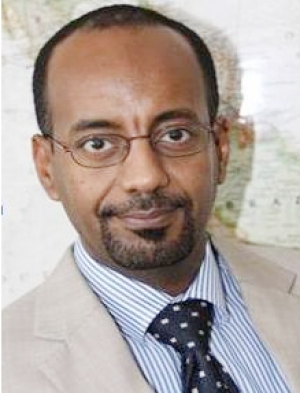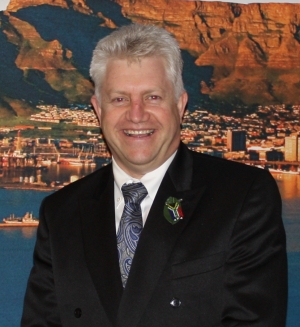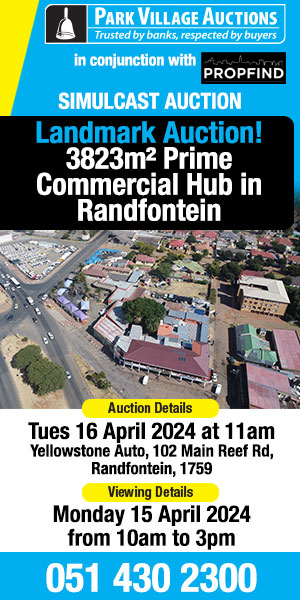New infrastructure network for Africa launched
A new network of infrastructure practitioners in the public and public sectors was launched on Tuesday to address Africa's large and growing infrastructure gap, which is estimated at US$31 billion a year.
Construction firms eye Africa as work dries up
South African construction companies are now pinning their hopes on projects elsewhere on the African continent and in other parts of the world.
HOPSCA for BRICSA?
An emerging trend for property investment in China is ‘HOPSCA’, (hotel, office, parking blocks, shopping centres, apartments) and JHI investgates whether they can redirect some of this energy into Africa.
Africa investment into SA
A 40 000sqm shopping centre well situated in busy Ondekkers Road in Roodepoort has been sold for close to R300 million to a West African investor
Opportunities abound, but there are challenges
African Development Bank expects growth in Africa to rebound from the economic global recession to a healthy average of 5,2% next year.
Acquisition bid for controlling stake in JHI
The acquisition by Excellerate and JHI management of the entire issued share capital of JHI is on the cards
African fund raises $320m for infrastructure
African Infrastructure Investment Fund 2 has announced its first close with unconditional commitments totalling $320m.
Construction sector in doldrums over delayed projects
INFRASTRUCTURE development bottlenecks are weighing heavily on SA’s construction companies.
 Construction companies are taking advantage of the surge in infrastructure spending in developing countries around the world.
Construction companies are taking advantage of the surge in infrastructure spending in developing countries around the world.
But the pace of infrastructure development in SA, despite government’s commitment to spend R845-billion in the next few years, is cause for considerable concern as major projects are being delayed, cancelled or reworked.
Not only does this affect the construction companies, but thwarts efforts to create jobs in an industry that could make a meaningful contribution to job creation and economic growth.
Construction companies, who all reported results over the past two weeks, experienced a year characterised by the loss of major multibillion-rand projects in the Middle East, delays in public-sector infrastructure investment, the postponement or cancellation of mining and other big projects, and the effects of a strong rand.
These factors affected companies to varying degrees, and strong results from companies like Basil Read and Wilson Bayly Holmes-Ovcon (WBHO) indicated that they hardly seemed to notice.
Luckily, some major construction projects had already started before the economic meltdown, including World Cup stadiums, Eskom’s build programme (although some parts have been delayed), airports and roads.
SA’s construction companies have delivered the World Cup stadiums, and continued to complete and get major projects internationally.
Their order books shrank, but have since stabilised or are picking up.
But they are all concerned about whether government will ramp up its infrastructure plans as significant portions of their project pipelines were expected to be taken up with such activity.
During the past year they already faced delays relating to Eskom’s power plant build programme, with the Kusile plant being pushed out, initially for a year, but many say it will be longer. There have also been delays and disruptions to the Gautrain and roads and transportation projects.
In the interim, they are focusing on seeking projects elsewhere to secure a strong order book and revenue stream.
This week Aveng reported a 33% drop in headline earnings for the six months to December. Revenue declined 5% to R16.8 billion, largely because its manufacturing and processing division was affected by the steel price, as well as poor results from Australasia and the Pacific regions. SA and Africa operations were strong.
Tender development expenses took a chunk out of operating profit.
It secured contracts in SA and West Africa, including at Sishen and the Sadiola gold mine in Mali.
Aveng said the rate of public sector contract awards in SA was slow, but construction spend in Australia “is underpinned by large-scale public infrastructure investments”.
Results from other construction companies were mixed. Murray & Roberts’ earnings dropped sharply, but Group Five’s earnings were 8% higher.
WBHO and Basil Read reported strong earnings growth.
Group Five said that, to mitigate the downturn in the private sector, future work would be provided locally by infrastructure investment in housing, transport, prisons, government buildings and hospitals. It said that “the timing of resumption in government infrastructure spending has been and will remain a key factor for the domestic South African construction industry”.
While there is planning for R40-billion in the public-private partnership and concessions market for large public buildings, roads and power developments, only a few awards have been made, it said.
In the Middle East, however, there were new infrastructure opportunities, including in power and heavy industries.
At Group Five’s construction business, over-border work contributed 17% to construction revenue, down from 45% the previous year, reflecting the impact of the cancellation of Middle East orders and the decline in the mining industry.
But now it is focusing “on a more aggressive over-border presence in favour of public infrastructure contracts, as well as other opportunities”.
Murray & Roberts’ order book is heavily weighted to domestic major long-term public sector projects, it said. The order book has increased by 10%, but is still 27% below the R60-billion of December 2008.
“It is the group’s view that to attract significant new private-sector investment back into the South African market, tangible evidence is required that the infrastructure backlog is being replaced and enhanced with an infrastructure surplus.”
Middle East markets, with the exception of Dubai and Bahrain, have rebounded.
Murray & Roberts said it was involved in a delay and disruption claim relating to Gautrain, brought about by late transfer of land, dolomite rectification works and funding constraints.
About R2-billion of its working capital was in domestic public sector projects, of which about R350-million was in overdue debt. In the transport and power sectors, there have been delays with current contracts, in new contract awards and with the certification of payments, it said.
Lonrho ups Kwikbuild stake to grow in Africa
Lonrho had increased its stake in prefabricated buildings manufacturer Kwikbuild to just more than 70% and planned to increase its stake in agricultural processor Rollex SA, CEO Geoffrey White said last week.
 Kwikbuild has a major share of the South African market, and has businesses in Mozambique and Zambia, while Rollex is one of SA’s largest agriprocessing companies supplying fresh produce to local and overseas customers.
Kwikbuild has a major share of the South African market, and has businesses in Mozambique and Zambia, while Rollex is one of SA’s largest agriprocessing companies supplying fresh produce to local and overseas customers.
The investments, being funded by proceeds from a recent private placement that raised £25m, were part of a strategy to own majority stakes in the companies in which it is investing across Africa.
White said the private placement had given Lonrho, listed on London’s AIM market, enough cash to expand in the five areas of infrastructure, transport, hotels, agribusiness and support services in 17 countries, including SA.
Once a sprawling conglomerate which, at its peak in 1995, had about 90 companies, Lonrho has restructured, selling assets to pay debt and return cash to shareholders. It is now an investment holding group targeting selected markets in Africa, where White said there were sustainable returns for the patient investor.
“We have so far raised £25m, the bulk of which we intend to deploy to increase our stake in some of our businesses,” he said.
“Our intention is to have a majority stake of at least more than 51% in key businesses and that is the reason we have increased our shareholding in Kwikbuild from 62% to about 71%. We are also looking at increasing our shareholding in Rollex from 51% to a significant amount.”
Kwikbuild has benefited largely from government tenders in SA, where it has supplied prefabricated clinics and classrooms in rural areas. It plans to expand to countries such as Angola and Democratic Republic of Congo, as well as in east Africa.
Rollex is packing and delivering fresh produce and fish to local customers Pick n Pay and Woolworths and, in Europe, to Marks & Spencer, Tesco and Sainsbury’s.
The company, operated as a subsidiary of Lonrho Agriculture, has a large, chilled bonded warehouse at OR Tambo airport.
White said Rollex was growing its export markets. It had begun shipping fish from Namibia to the US and Europe, and had opened new markets in the Middle East and Scandinavia. “There is general demand for African fresh produce and we are sourcing our products not only from SA but elsewhere in Africa.”
There were plans to expand agriprocessing facilities in Angola, Malawi, Mali and Zimbabwe.
White said Lonrho was consolidating and expanding in Zimbabwe through LonZim. He said the country was recovering, and still had “a relatively highly educated labour force with an industrious working culture” as well as good infrastructure.
LonZim’s portfolio covers sectors such as aviation, hotels, IT and pharmaceuticals.
SA to be the racetrack of African kings
African countries could soon have their race horses galloping in Plettenberg Bay, that's if Africa Race Estate is allowed to develop a R1.3bn track, pavilion, a five-star hotel and village in the area.
Most Popular
Attacq and Nedbank Corporate and Investment Banking (CIB) Achieves Dual Milestone with SA’s first EDGE and Green Star Certification for Nexus commercial building
Accelerate Property Fund sells Cherry Lane Shopping Centre for R60m
FNB Broker Business Confidence declines in 1st quarter of 2024
Repo rate holds steady for 5th consecutive MPC meeting
Urbanisation drives demand for affordable housing in the Eastern Cape, TUHF

eProperty News is a leading online commercial property marketplace serving the Southern African Investment, Office, Retail and Industrial property and allied sectors.

















